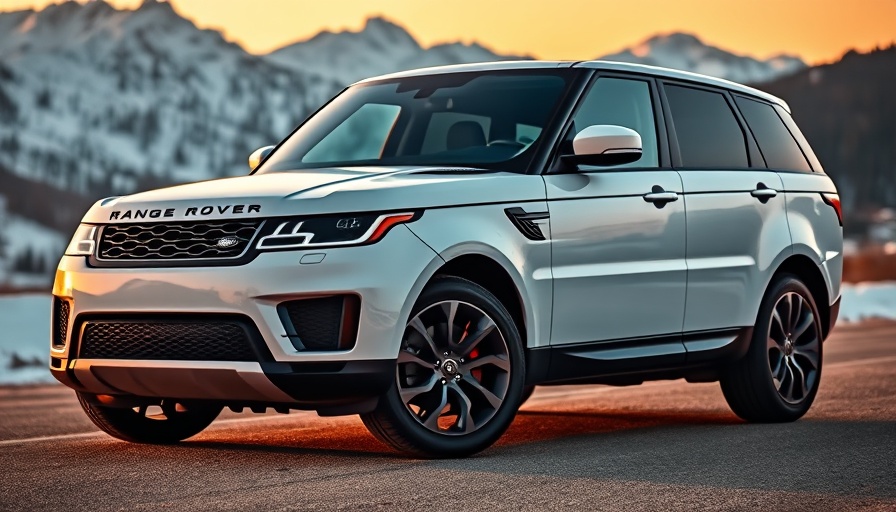
JLR's Bold Move Amid Rising Tariffs: A Signal for the Auto Industry
In an unexpected turn of events, Jaguar Land Rover (JLR) has announced a suspension of all vehicle shipments to the United States, responding to a newly imposed 25% import tariff on April 2. This significant tariff, enacted by former President Donald Trump, has come at a challenging time for the British luxury automaker, which relies heavily on the North American market for nearly a quarter of its sales. JLR sold approximately 430,000 vehicles in its most recent fiscal year, making the U.S. market a vital component of its business strategy.
The Fragile State of Luxury Car Makers
The decision to halt exports underscores the precarious situation JLR finds itself in as profits continue to dwindle; the company reported a staggering 17% decline in quarterly profits earlier this year. In contrast to industry giants like GM and Stellantis, which benefit from robust domestic manufacturing, JLR's reliance on imports puts it at a distinct disadvantage. This pause in shipments raises questions about the company's ability to navigate the uncertainty that tariffs introduce, particularly as JLR pursues a transformation towards a more luxury-focused brand identity.
Luxury Market Strategies: Is JLR on the Right Path?
As JLR pivots from competing with established brands such as BMW and Mercedes to targeting the ultra-luxury segment occupied by Bentley and Rolls-Royce, the market dynamics are shifting. The unveiling of the Type 00 concept sedan last December hinted at a new direction for the company, with an anticipated production model expected to debut in 2026, starting at a substantial $130,000. While this pivot may attract younger and wealthier buyers, it also risks alienating the brand's existing customer base, who may feel disconnected from JLR's evolving identity.
Land Rover: Vulnerabilities in the Price-Conscious Market
While Jaguar’s high-end offerings may withstand the tariff-induced price increases better, Land Rover faces a different challenge. Buyers of more accessible models like the Defender are often more price-sensitive and may reconsider purchases if faced with higher costs due to tariffs. Unlike Jaguar, Land Rover lacks a parallel reinvention campaign, making it vital for JLR to evaluate its approach to this segment as demand dynamics inevitably shift.
Strategic Adaptations: What Lies Ahead for JLR?
The general consensus among industry observers is that JLR must act swiftly to mitigate the impact of tariffs. Potential strategies could include localizing production in the U.S. to avoid import dues, increasing the focus on high-margin luxury models, or scaling back on lower-margin offerings that are more susceptible to market fluctuations.
Conclusion
As Jaguar Land Rover navigates this complex landscape, the upcoming months will be crucial. The company must devise a robust Plan B to not only withstand the immediate shocks of these tariffs but to also position itself for sustainable growth in a changing automotive market. Staying attuned to consumer preferences and adjusting its offerings will be essential in maintaining its foothold in the lucrative yet increasingly competitive U.S. market.
 Add Row
Add Row  Add
Add 




 Add Row
Add Row  Add
Add 

Write A Comment